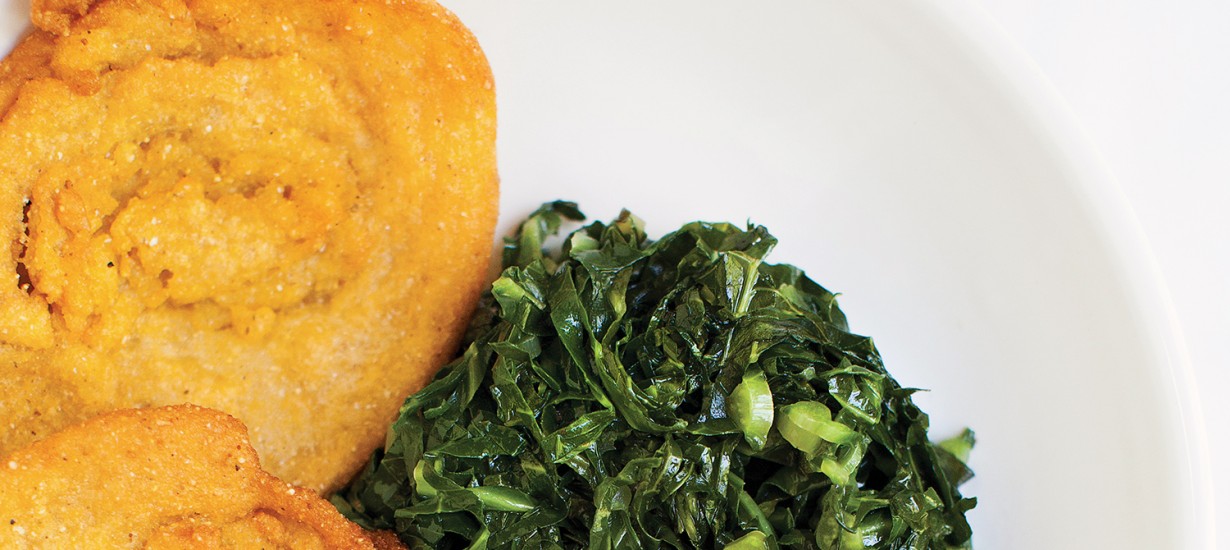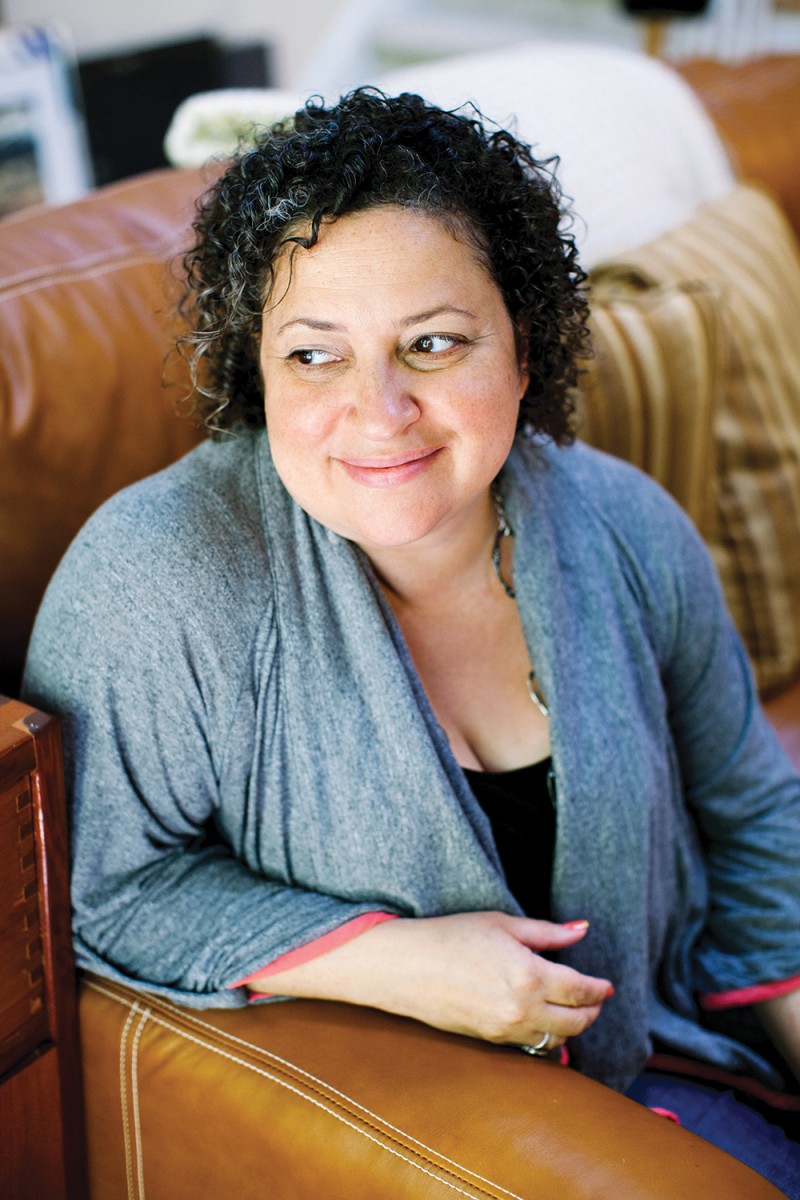Made for Each Other

by Malinda Maynor Lowery ’02

Malinda Maynor Lowery ’02 (MA, ’05 PhD) is the director of UNC’s Southern Oral History Program. Lowery, an associate professor of history who also holds an undergraduate degree from Harvard and a master’s from Stanford, has made documentary films on Native American issues and has written about the Lumbee tribe. Photo by Anna Routh Barzin ’07
My late husband, Willie, would eat cornbread without collards, but he never ate collards without cornbread.
He also used to say that he and I were made for each other, “like peas and corn” — he meant field peas, not sweet peas — and now peas and corn are a sweet and savory, satisfying reminder of him.
He grew up on Lumbee food in its Southern countryside glory; his parents were sharecroppers and were among those fortunate enough to have a garden, so they could eat seasonal vegetables alongside pork and game, chicken and rice, and every type of preparation of dried or fresh corn you can imagine. But during the winter, he used to tell me, all they had was sweet potatoes, collards and cornbread.
My parents, both Lumbees, made sure I grew up on Lumbee food, too, but my mother’s cooking had a midcentury modern spin, encompassing her working-mom specialties and grocery store luxuries — casseroles, spaghetti sauce, boxed mac and cheese — and liberal portions of turnips, collards, butterbeans, corn and field peas from my aunt’s garden. She baked cornbread for special occasions, but like Willie, she didn’t grow up on it. The milk, butter, refined flour, eggs and sugar were too precious to a poor farm family to bake them into cornbread. We take them for granted now, because we can get them in the store. But to a farm family in the mid-20th-century South, these were luxury items or obtained after a great deal of hard work. If you had to milk your own cows, raise your own chickens, churn your own butter and then buy flour and sugar with what little you had left over after selling your crop, you weren’t going to waste those ingredients by mixing them up together in a pan. Especially when the only other food you had was winter greens and sweet potatoes.
Those winters made such an impression on Willie that he would not eat collards without cornbread, even long after he had plenty to eat in the winter. The two dishes were inseparable for him, forged in a no-waste ethic that we celebrate now. But for him, my parents and other farm families around the South, that ethic bled into deprivation during the leanest season and burnished the dishes together in eating habits that are indistinguishable from memory, from self and from community.
The cornbread that Lumbees cook in their homes is not baked; it’s fried. Lest you think “fried” makes it unhealthy, let me remind you that those ingredients in baked cornbread include refined sugars, cholesterol and animal fats (not especially healthy). The only ingredients in Lumbee cornbread are ground cornmeal, water and salt, mixed into a batter and spooned into a hot frying pan with a shallow layer of oil (my mom used vegetable oil, but I’m sure Willie’s family used lard, which may partly account for why he never liked my cornbread all that much). Spoon it into the pan, let it brown on one side and then flip it over; watch while the edges crisp, take it out and let the oil drain off. There’s no more saturated fat or cholesterol in that serving of cornbread than there is in baked cornbread. There’s probably less.
Malinda Maynor Lowery ’02 (MA, ’05 PhD) is the director of UNC’s Southern Oral History Program. Lowery, an associate professor of history who also holds an undergraduate degree from Harvard and a master’s from Stanford, has made documentary films on Native American issues and has written about the Lumbee tribe. She also is co-producer, with Cynthia Hill ’93, of the PBS series A Chef’s Life. Lowery’s current book project is a history of the Lumbee tribe, to be published by UNC Press.
Thanks for reading the Carolina Alumni Review
Carolina Alumni members, sign in to continue reading.
Not yet a member? Become one today.
